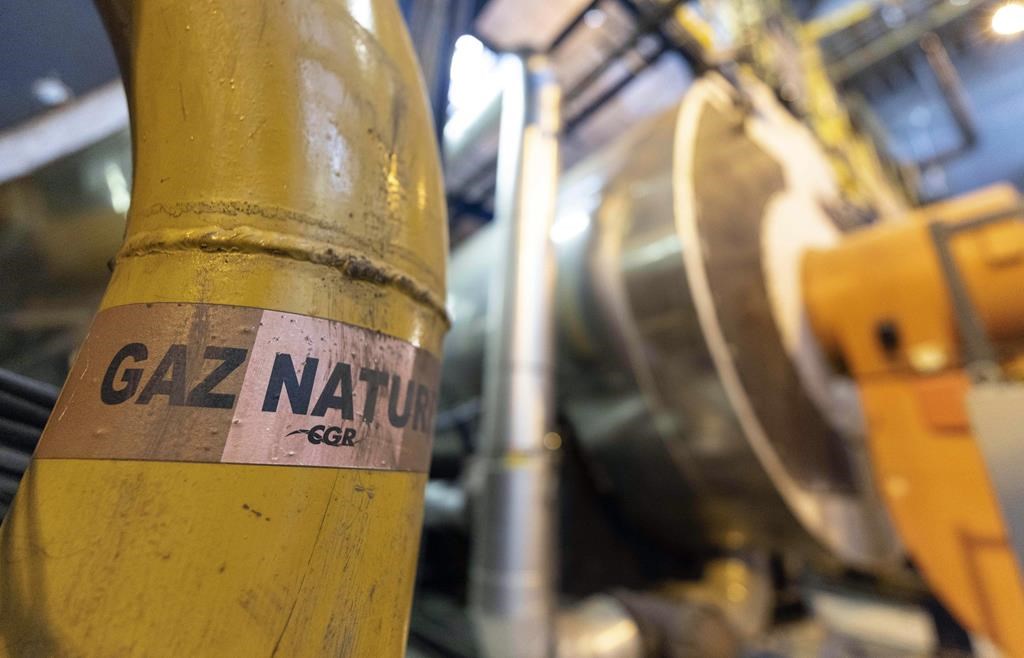The federal Competition Bureau is investigating the Canadian Gas Association to determine if it made misleading statements about the environmental impact of natural gas.

The bureau confirmed Thursday it has launched an inquiry into “alleged deceptive marketing practices” by the industry lobby group. The inquiry was prompted by a complaint lodged by six individuals connected with the advocacy group Canadian Association of Physicians for the Environment (CAPE).
The complainants allege the Canadian Gas Association — whose members include companies such as Enbridge Inc., FortisBC, and ATCO — is misleading the public with its “Fuelling Canada” marketing campaign.
The campaign promotes the use of natural gas as a form of low emission energy. On the campaign’s website, the lobby group says “Canada’s natural gas industry works 24/7 to ensure affordable, clean, and reliable energy for families and businesses.”
But the Canadian Association of Physicians for the Environment argues natural gas is not as “clean” as the campaign makes it sound. In a news release, the group says natural gas is a fossil fuel that contributes to global warming.
“The extraction and production of gas also pollutes the air and contaminates water sources, while closer to home, gas appliances cause indoor air pollution and pose a serious health risk for children’s respiratory health,” said Dr. Melissa Lem, a member of CAPE and one of the complainants.

Lem said environmental groups are frustrated by what they believe is a surge of corporate “greenwashing” in recent years. Greenwashing is a term used to describe a form of marketing spin aimed at deceptively convincing the public that a company’s products or services are environmentally friendly.

Get daily National news
She added environmental groups increasingly believe they need to fight back against misleading claims.
“We are realizing we have to use every tool in the toolbox right now, and competition bureau complaints are a potent tool,” Lem said.
According to the U.S. Energy Information Administration, burning natural gas for energy results in fewer emissions of nearly all types of air pollutants and carbon dioxide than burning coal or petroleum products.
However, the federal agency says natural gas production and extraction is responsible for the leakage of methane — a potent greenhouse gas — into the atmosphere. The U.S. Environmental Protection Agency estimates that in 2019, methane emissions from natural gas and petroleum systems and from abandoned oil and natural gas wells were the source of about 29 per cent of total U.S. methane emissions and about 3 per cent of total U.S. greenhouse gas emissions.
In Canada, environmental groups have called on this country’s energy sector to do more to reduce so-called fugitive emissions — methane leaks that can occur during the natural gas drilling and extraction process.
On its website, the Canadian Gas Association said the industry is working to deploy technologies that reduce emissions across all its operations. It said recent innovations include hybrid heating, combined heating and small-scale residential/commercial carbon capture — all of which have the potential to reduce the carbon footprint of natural gas usage.
The federal Competition Bureau is obligated by law to investigate formal complaints related to misleading advertising, as long as they meet the technical requirements laid out under Canada’s Competition Act.
In September, the bureau confirmed it is investigating a related complaint of alleged “greenwashing” in advertising, this one with respect to RBC.
The RBC inquiry was launched in response to a complaint by six individuals, backed by environmental groups. The complaint alleges the bank’s publicly stated aim of achieving net-zero greenhouse gas emissions in its operations and lending by 2050 is misleading, given RBC continues to offer significant financial support to the fossil fuel sector.




Comments